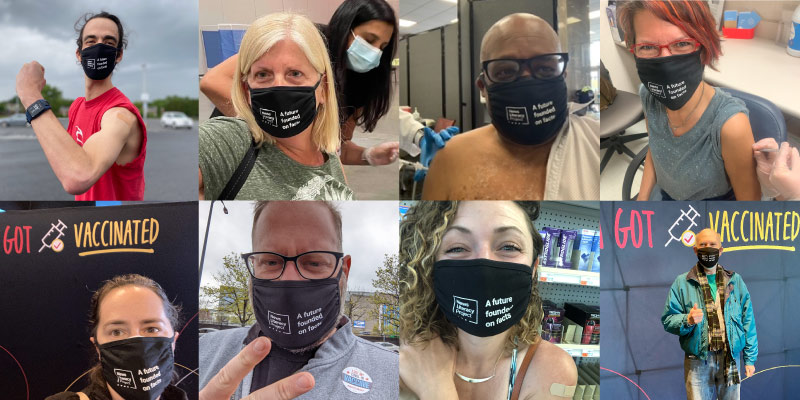

More Info
Vaccines and Misinformation | Understanding how misinformation can fuel vaccine hesitancy
Misinformation about the COVID-19 vaccine is contributing to a hesitancy to get vaccinated. In an effort to separate fact from fiction and provide a better understanding of the reasons for that reluctance, we’re going to spend this week focusing on the issue and providing trustworthy information about it.

NLP’s staff members snapped selfies while getting their vaccine shot.
We’re starting with an update to our COVID-19 webpage, which includes links to credible health care organizations and reporting that have debunked many of the myths surrounding the vaccines. Additional resources dive more directly into the reasons people have expressed for not getting a shot. Our friends at SAS are providing context to the data about the vaccines that we hope will show you how effective they’ve been in preventing the spread and harm from the virus.
We’re also producing a special episode of our podcast Is that a fact? We’ll get insight from Dr. Erica Pan, California state epidemiologist and deputy director for the Center for Infectious Diseases at the California Department of Public Health, and Brandy Zadrozny, a senior reporter for NBC News who covers misinformation, extremism and the internet. They share their expertise on how the vaccines were created, their effectiveness, the impact of misinformation on vaccine hesitancy and how anti-vaxxers have used the pandemic to sow more confusion and grow their ranks.
Last week, the Centers for Disease Control and Prevention announced new guidelines stating that “fully vaccinated people no longer need to wear a mask or physically distance in any setting,” along with some specific exceptions. It’s clear that the vaccinations are saving lives, reducing the health risks of the virus and helping us return to some semblance of normalcy. We hope that by providing this information, you can help the people in your community make informed decisions about getting the vaccines. Please share these resources, and remember, the best advice we can offer people who are hesitant to get a vaccine is to suggest that they talk to their health care provider about the benefits and risks of getting vaccinated.
